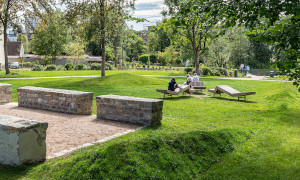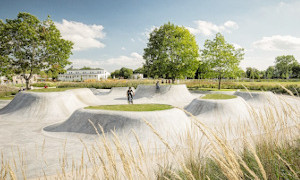The traditional autumn conference of the bdla Schleswig-Holstein regional association took place from Friday, October 25 to Saturday, October 26 at the Uwe Seeler Football Park in Malente.
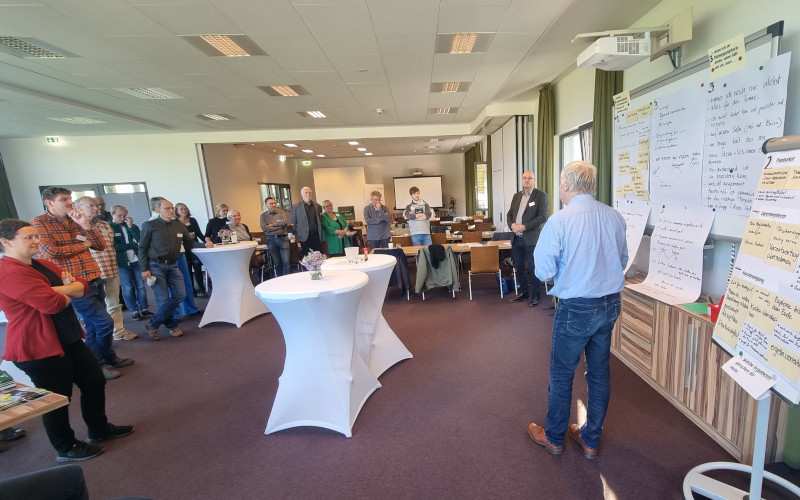
Our understanding of planning and the current requirements for accelerated planning, planning implementation and the opportunities for participation were central to the program on the subject of experiments.
The new regional chairman of the bdla, Bernward Benedikt Jansen, led through the two days as an experienced moderator.
Right at the start, Angelika Jacob took the experiment literally, introducing us to the subject matter via video message and Bernward Benedikt Jansen used three key questions to stimulate thoughts and discussions about our own understanding of planning. The advantages and disadvantages of experiments and accelerated planning processes were discussed: the dynamics of planning processes through initial euphoria, the disillusionment that sets in and, if things go well, the satisfying euphoria of all those involved when a good planning result is achieved.

In contrast, Annett Pahl, a former honorary mayor of a rural Mecklenburg municipality and landscape architect, reported on concrete political action at municipal and regional level. She showed very clearly that a lot can be achieved through personal commitment, transparency and visibility of planning. Citizens feel involved and support the planning process.

The afternoon of the first day was devoted to the effects of the current planning acceleration requirements on the planning processes and content of infrastructure expansion.
Uwe Herrmann and his colleague Steffi Werhahn from BHF Landschaftsarchitekten presented the various legislative requirements of recent years and used planning examples to illustrate the effects, from the EU Emergency Ordinance to RED III. Their conclusion was that acceleration does not have to be at the expense of nature conservation. There is more openness for a pragmatic approach and the avoidance of less problem-oriented studies and expert opinions. However, the new methods to be developed also need time to develop their accelerating effect. Efficiency and new routines need to be practiced.

Dietmar Ulbrich, state chairman of BUND Schleswig-Holstein and himself a landscape architect, responded to this with his presentation. He criticized the actionism in terms of climate adaptation and urged us not to lose sight of the causes of climate change and not to put the worrying loss of biodiversity on the back burner. Biological climate protection must be considered together with technical climate protection. From the point of view of the environmental associations, the acceleration of planning is at the expense of participation rights and sound environmental assessments. Legal channels and thus opportunities for legal action also appear to be reduced.

Christoph Gondesen presented a completely different perspective and approach to a project using the Danish major project "Fehmarnbelt Fixed Link" as an example. Shorter decision-making paths on the official and political side as well as very early mediation close to the citizens ensure efficient processes with our Danish neighbors. In principle, citizens have great confidence in the competence of those responsible. They feel well informed and participate constructively in implementation.

In the evening, bdla fitness trainer Axel Fichtner provided sporting experiments before the evening ended with wine, cheese and lively discussions.
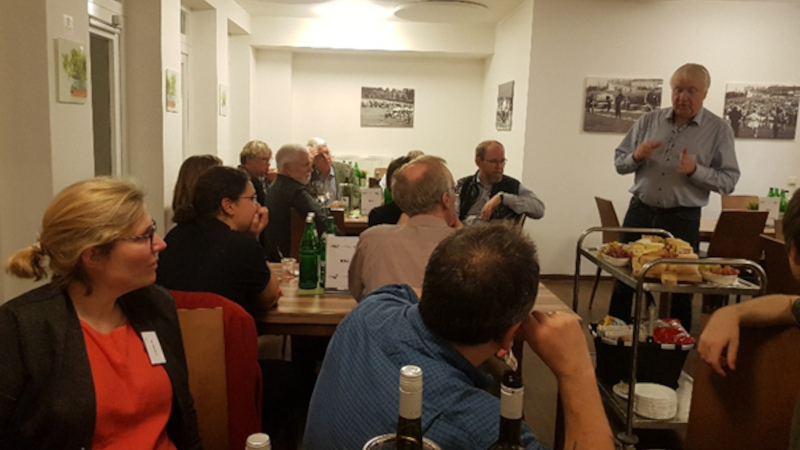
Saturday morning was dedicated to the topic of participation. Two experienced participation specialists had traveled from Berlin: Dr. Sarah Ginski-Thiele from Zebralog and Marie Bartels from 50Hertz. Ms. Ginski-Thiele explained the art of participation in her presentation. The exact consideration of why, with which goal and at which planning level participation takes place also determines the methods and implementation. The consensus principle is the better basis for difficult planning decisions where no consensus can be found. Decisions or planning recommendations are made if there is no serious justified objection.
Ms. Bartels showed how the extensive grid expansion required for C02 neutrality can be managed in such a way that residents and other stakeholders are included in the process, despite limited time and opportunities for co-determination. In this way, impact-avoiding measures can be incorporated into the ongoing planning.
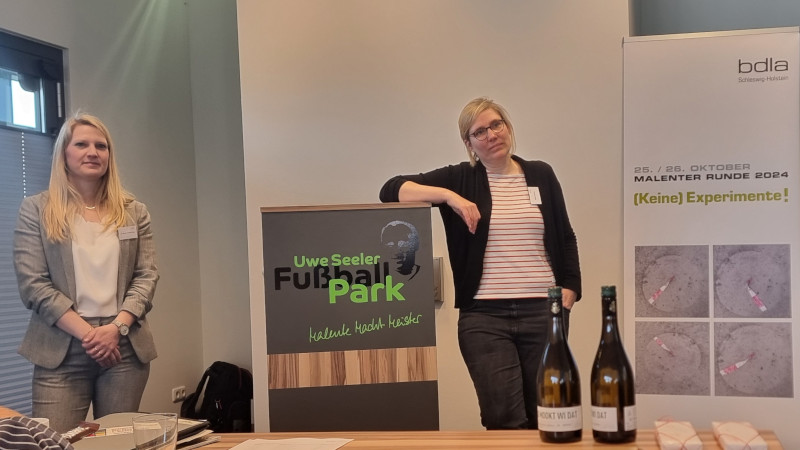
Where do regulations hinder us or slow down quality? Peter Schraml from "Maßstab Mensch - barrierefrei undamp; sicher leben" in Munich addressed this question. His practical perspective humorously pointed out misunderstood standardization and alternatives for designing play facilities that are safe and still encourage children and young people to experiment.
Finally, Marcel Wiegard from Greenbox Landschaftsarchitekten in Cologne took it upon himself to encourage the whole group to experiment directly. The possibilities with ChatGPT or Microsoft Co-Pilot could be tested together and possible applications tried out. Marcel Wiegard encouraged people to test the programs and showed that the software also helps as a sparring partner to stimulate or check their own design ideas.
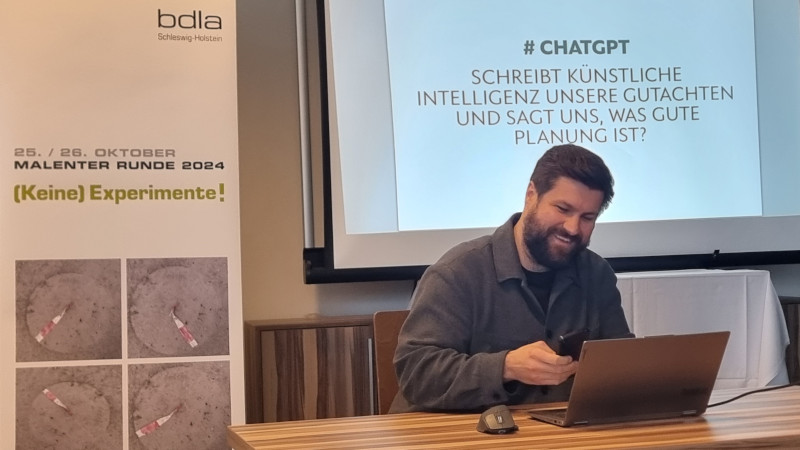
Bernward Benedikt Jansen summed it up for the 30 or so participants as follows: "A well-rounded program and package of topics sends us off into our everyday planning work. Practical suggestions for dealing with acceleration and participation processes in planning and a look beyond the horizon can be taken away. The fact that there was plenty of time for questions and discussions this time was very well received.
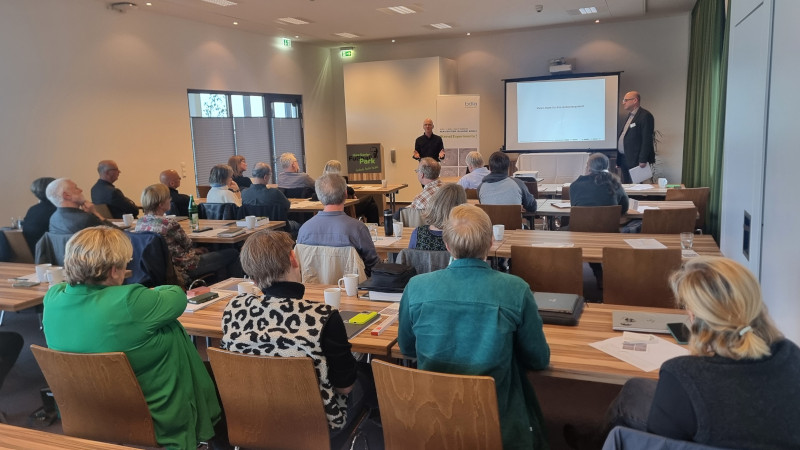
In 2025, the bdla S-H will be celebrating the 40th anniversary of the Malenter Runde, to which we are already cordially inviting everyone:
The date is November 14-15, 2025 in Bad Malente.
The speakers have kindly made their scripts available:
-
pdf
JANSEN: Unit Experiment Planning
(319 KB)
PDF -
pdf
PAHL: Experiment in politics today
(8.16 MB)
PDF -
pdf
HERRMANN: Current status of the Pact for Accelerating Planning, Approval and Implementation
(3.82 MB)
PDF -
pdf
ULBRICH: Planning acceleration - what do the environmental associations say?
(760 KB)
PDF -
pdf
GONDESEN: How do the Danes do it?
(5.25 MB)
PDF -
pdf
GINSKI-THIELE: Experiments in public participation
(5.07 MB)
PDF -
pdf
BARTELS: Streamlined procedures in electricity grid expansion
(1.64 MB)
PDF -
pdf
WIEGARD: A self-experiment with ChatGPT
(7.68 MB)
PDF
Text: Maria Julius, Lübeck, November 2024
Photos: Bernd Groth, Ingrid Max
- Latitude: 0
- Longitude: 0
